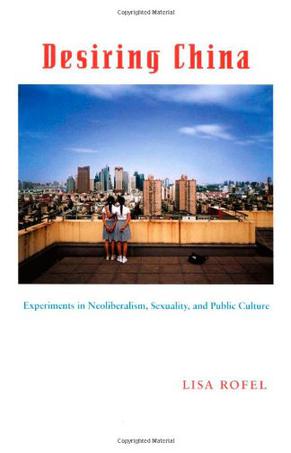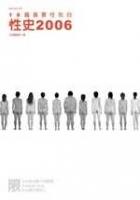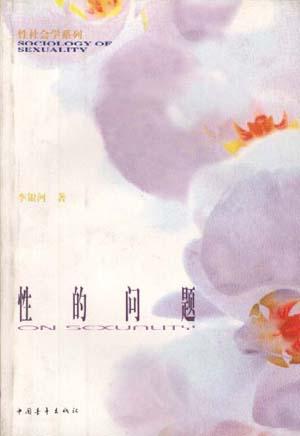-

Desiring China
Through window displays, newspapers, soap operas, gay bars, and other public culture venues, Chinese citizens are negotiating what it means to be cosmopolitan citizens of the world, with appropriate needs, aspirations, and longings. Lisa Rofel argues that the creation of such “desiring subjects” is at the core of China’s contingent, piece-by-piece reconfiguration of its relationship to a post-socialist world. In a study at once ethnographic, historical, and theoretical, she contends that neoliberal subjectivities are created through the production of various desires—material, sexual, and affective—and that it is largely through their engagements with public culture that people in China are imagining and practicing appropriate desires for the post-Mao era.Drawing on her research over the past two decades among urban residents and rural migrants in Hangzhou and Beijing, Rofel analyzes the meanings that individuals attach to various public cultural phenomena and what their interpretations say about their understandings of post-socialist China and their roles within it. She locates the first broad-based public debate about post-Mao social changes in the passionate dialogues about the popular 1991 television soap opera Yearnings. She describes how the emergence of gay identities and practices in China reveals connections to a transnational network of lesbians and gay men at the same time that it brings urban/rural and class divisions to the fore. The 1999–2001 negotiations over China’s entry into the World Trade Organization; a controversial women’s museum; the ways that young single women portray their longings in relation to the privations they imagine their mothers experienced; adjudications of the limits of self-interest in court cases related to homoerotic desire, intellectual property, and consumer fraud—Rofel reveals all of these as sites where desiring subjects come into being. -

Sexuality
Sex is everywhere in the modern world. But why is it so important to who we are? What shapes our sexuality and how does our sexuality shape us. What impact have feminism, religion, and HIV/AIDS had on our attitudes to sex? This Very Short Introduction examines these questions and more, exploring how sexual norms have changed throughout history, from self-castrating early Christians to modern-day born-again virgins, from sexual liberationists to lesbian separatists; and tackling the major controversies around sex and sexuality today: ideas on masculinity and feminity, paedophilia, gay politics, sex education, eugenics, and even the future of sex itself. -

一起搞吧!科學與性的奇異交配
人能不能憑意志力達到高潮?為什麼心臟可以移植,陰莖不能?陰道高潮究竟是不是一場迷思?為什麼威而鋼幫不了女人,也幫不了熊貓?兩顆睪丸恰恰好,三顆是否會更好?暢銷書《不過是具屍體》的作者瑪莉.羅曲又來搞怪了,憑著脫韁的好奇心與感染力十足的幽默機智,這次她要挑戰科學界最引人入勝的主題:性。 這絕對是你我內心深處窺視欲望的一大福音,因為羅曲可是個行動派,除了厚著臉皮在圖書館影印標題讓人害羞的性學研究文章,如《論性行為間呻吟以及過度換氣之功能》,她還以科學之名,隻身前往《機械性愛》的新書發表會,遠渡重洋到臺灣觀看許耕榕醫師的陰莖環手術,甚至把無知(但勇氣十足)的丈夫拉到倫敦,在立體動態超音波的見證下,發生純屬研究的性關係。令人尷尬害羞的一切,我們都有羅曲代勞。這些自娛娛人、勇於嘗試的親身體驗,讓《一起搞吧!》在科普界獨樹一格、笑料十足。 羅曲也帶領讀者回顧性學研究令人拍案叫絕的曲折發展史。性學實驗中匿名為阿拉伯數字的受試者中,是否有實驗者和他們的伴侶?性學大師金賽的閣樓實驗,是肉欲橫流的聚會,還是前衛的性生理學研究?且看羅曲如何以幽默的調侃文字,向勇氣十足的性生理學家們致敬。 -

性史2006 : 16篇真實性告白
華文世界最情色的徵文活動 跨越禁忌、性別、世代、地域的情慾書寫 性,是自然的事,這尤其是自然的妙事;性史,是可以公開談論的事,這尤其要輕鬆愉快地來談。八十年前,北大教授張競生徵集十二篇青春男女的性經驗,完成《性史1926》,不僅為當時的保守社會投下一枚震撼彈,更讓讀這本書的人魂靈兒飛上了半天;八十年後的今天,性事不再隱諱,全民談性誰曰不宜,大辣出版因此舉辦「性史2006徵文活動」,全民性史寫作運動正式開啟。 〈本書為限制級,未滿18歲請勿閱讀以及購買〉 本書收錄十六篇跨越禁忌、性別、世代的作品,性愛描寫題材多元有趣,從性啟蒙、奇特性經驗到各種特殊性癖好,有異性戀、同性戀和雙性戀,從七年級生到八十歲的老太太皆有。要將深埋於內心底層的一段段美的醜的甜的苦的身體記憶,再度反芻掘出,確實需要相當的勇氣! 成英姝說,第一名〈軍中樂園秘史〉使用的口語文字將各色妓女的描述、軍中樂園裡的生活作息、作者與妓女們的互動細節掌握得恰到好處,是可以滿足讀者的文章。楊澤說,第二名的〈女馬〉將青春期少女寫成一匹匹,已準備好出發上路的小母馬,馬鞍——奶罩既是甜蜜的負荷,也是自然與文明、先天動物性與後天人工性的混合表徵。許佑生認為,第三名的〈被攝/射體的美麗與哀愁〉將男性從性愛的傳統角色——觀看者,巧妙轉換為被看者,在由主動變成被動的落差過程中,檢視自身情慾的流動,頗富巧思。而其他十三篇佳作真誠且赤裸的性告白,不但詮釋了性愛的不同樣貌,更流露出對身體、對情感、對時光的眷戀與省思,也使讀者從中檢視自己的情慾光譜。 -

性的问题
本书是对性问题思考和研究的结果。书中分析和批判了与性有关的法律和规范,探讨了性在不同时代和不同文化中的意义,西方和中国的传统性规范,以及性规范在现代的变化。书中分析和批判了对于违法的性和违规的性的定义及其处罚,以及此种做法的文化含义。本书还从性别角度分析了性的问题,如性的性别差异问题,淫秽品问题,卖淫问题,家庭暴力问题,以及女权主义的性政治。 -

自慰 : 恐懼的歷史
高舉啟蒙與自由精神的西方史上,經歷過一場集體恐懼,只為了人們獨自在想像中實現的欲望——自慰。法國醫生說:「這種可鄙的行為造成的死亡人數,比規模最大的戰爭和傳染病加起來還要多。」一本美國出版品則寫道:「任何字眼,都不足以形容自慰對你的整個人生,由生到死所造成的各種悲慘狀況。這些慘劇將不斷跟隨著你,不停地侵蝕你。寧可立刻死去,也好過自我污染。」 本書作者耙梳歷史文獻尋找恐懼的起點,由十八世紀初一本作者不詳的《俄南之疾》發現線索。這本小冊子率先詛咒自慰的嚴重性,成功地在讀者間推銷治療藥方,並進一步獲得知名的瑞士醫師提索引述。提索的權威性論證,帶領了後續的專家人士聯手討伐自慰,各種「禁止–反抗–懲罰」的言論和手法不絕。 本書列舉十八、十九世紀間,醫生、衛生學家和教育家運用貌似科學、實則誇張與荒謬的描述製造人們的恐懼;就連法國知識分子伏爾泰、狄德羅、盧梭,德國哲學家康德,俄國作家托爾斯泰、瑞典劇作家史特林堡,和性心理學家佛洛伊德,在知名著作中都對自慰持負面觀感。一直要到《金賽報告》出現,自慰有害的說法才開始慢慢淡化。 時至今日,人們並未遠離對自慰的懷疑和焦慮,彷彿還能感受這段歷史的陰影……